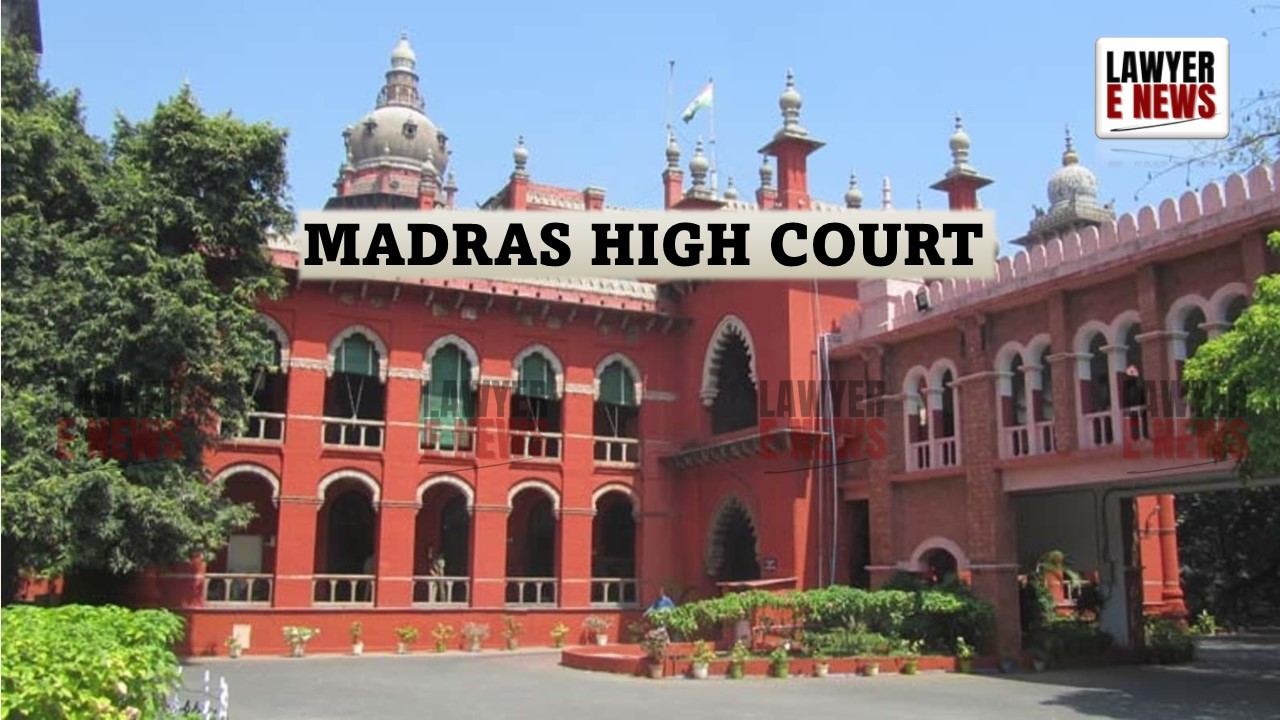-
by Admin
15 February 2026 2:36 AM



Madras High Court allowed two second appeals, declaring the decree in O.S. No. 213/2002 as null and void for fraudulent exclusion of necessary parties. The defendant, Balashanmugham, was found to have knowingly omitted the rightful co-owners—his sisters—from the partition suit, despite being aware of their claims under a settlement deed.
The Court further quashed related execution proceedings, granting liberty to the defendant to file a fresh suit for partition by impleading all necessary parties, including the plaintiffs.
The plaintiffs, three sisters, sought to declare the decree passed in O.S. No. 213/2002 on the file of the Subordinate Court, Tiruppur, as null and void. They alleged that their brother, the defendant, had intentionally omitted them from the partition suit, even though he knew they had inherited the property through a settlement deed executed by their mother, Ammasaiakkal, in 1999.
The plaintiffs contended that the decree was obtained fraudulently and violated the principle of natural justice. They also objected to the execution of the final decree in E.P. No. 14/2017, arguing that the executing court could not ignore the fraudulent suppression of necessary parties.
The Court held that the defendant had knowledge of the plaintiffs’ ownership claims based on the settlement and sale deeds executed before the filing of O.S. No. 213/2002. The defendant’s failure to implead the plaintiffs constituted a deliberate fraud on the court, rendering the decree a nullity.
The judgment relied on the Supreme Court’s precedents in A.V. Papayya Sastry v. Govt. of A.P. (2007) and S.P. Chengalvaraya Naidu v. Jagannath (1994), which emphasized that fraud vitiates all judicial acts.
The plaintiffs had raised objections during execution proceedings, citing fraudulent omission from the partition suit. The Court criticized the lower courts for dismissing these objections on the ground that execution courts could not go beyond the decree. Justice Hemalatha clarified that the principle of fraud supersedes procedural limitations, and the execution court should have examined the allegations.
The Court underscored that fraudulent suppression of parties violates the doctrine of fairness and nullifies judicial proceedings. It observed that the plaintiffs were deprived of their rightful opportunity to contest the suit in O.S. No. 213/2002 due to the defendant’s actions.
The Court allowed the appeals, setting aside the decrees in A.S. No. 81/2020 and A.S. No. 83/2020, as well as the trial court’s judgments in O.S. No. 367/2016 and the execution petition. The key directions included:
Declaring the decree in O.S. No. 213/2002 as null and void.
Permitting the defendant to file a fresh partition suit, impleading the plaintiffs as necessary parties.
Allowing the plaintiffs to assert their claims in the new partition proceedings.
This ruling reinforces the legal principle that fraud nullifies all judicial acts. It affirms the judiciary’s role in safeguarding fairness and justice, even in procedural matters like execution proceedings.
Date of Decision: January 3, 2025
